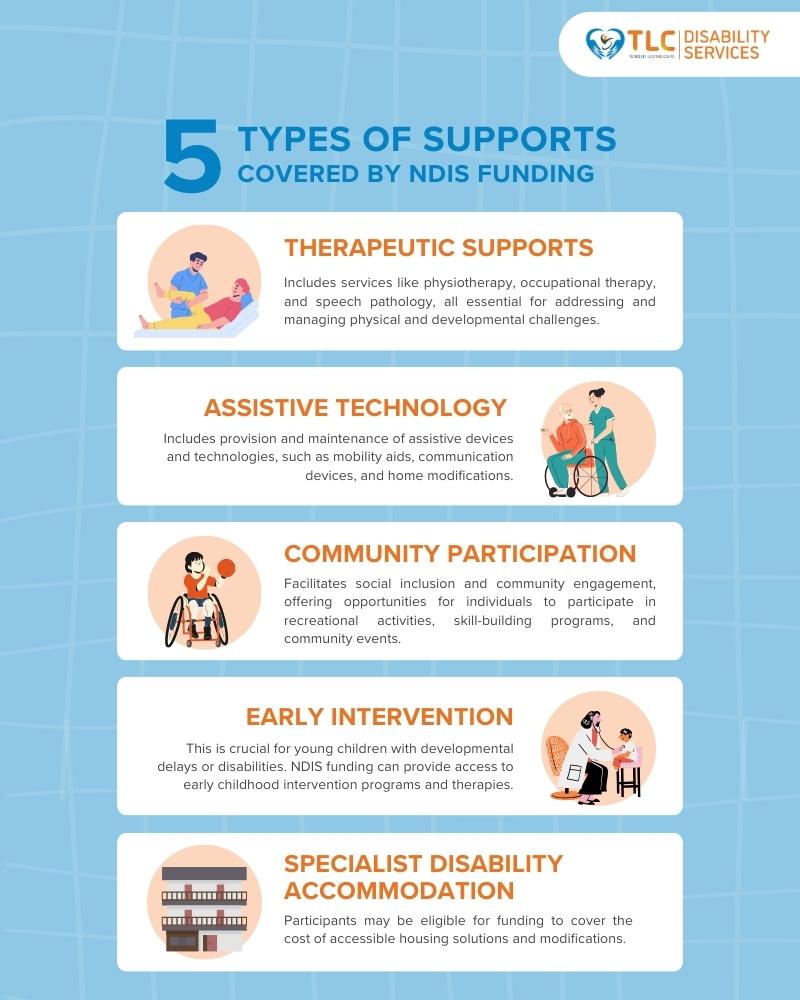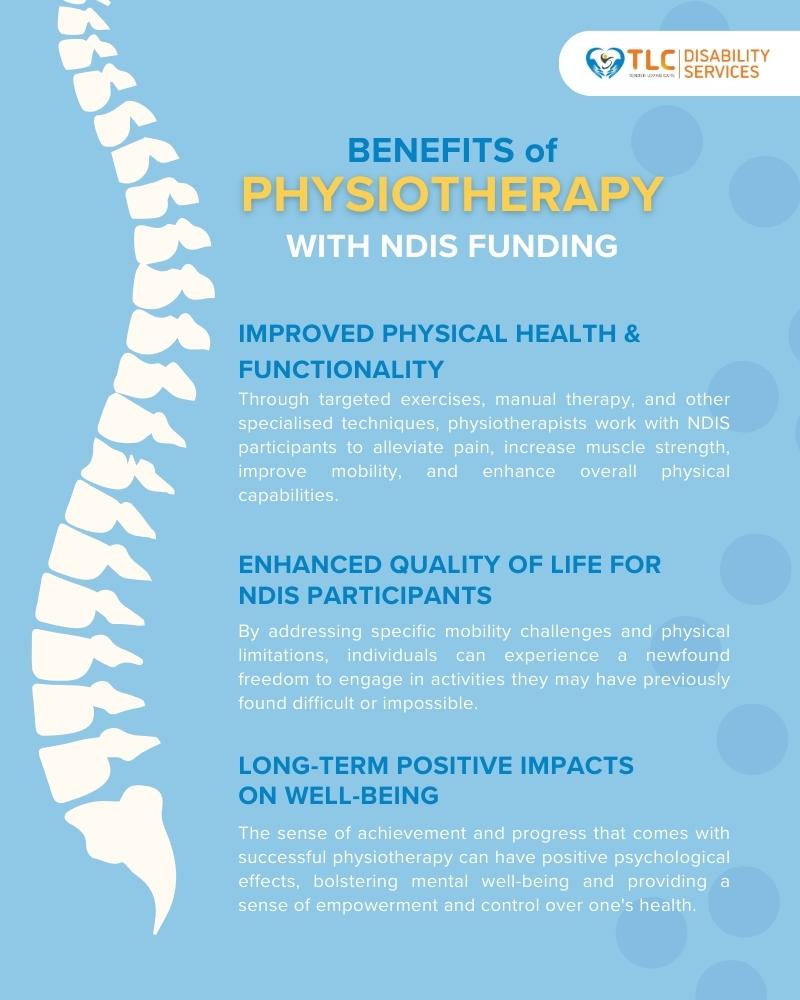The National Disability Insurance Scheme (NDIS) is a pivotal initiative by the Australian government to provide support and services to individuals with disabilities. Enacted with enhancing the quality of life for those with disabilities, the NDIS seeks to empower participants by granting them access to a broad range of services and therapies tailored to their specific needs. This includes essential interventions like physiotherapy, which plays a crucial role in the holistic well-being of NDIS participants.
Physiotherapy falls under the Allied Health Services offered for individuals with disabilities under the NDIS scheme. It encompasses a diverse range of interventions designed to address physical impairments, improve mobility, and enhance overall functionality.
For NDIS participants, physiotherapy is an invaluable tool in achieving and maintaining their highest level of physical well-being. Whether it’s through targeted exercises, manual therapy, or assistive devices, physiotherapists work closely with participants to alleviate pain, improve muscle strength, and promote independence in daily activities.
This comprehensive guide aims to thoroughly discuss the process of accessing physiotherapy services through NDIS funding. Whether you’re new to the NDIS or seeking to maximise your existing plan, this article will be your go-to resource for all things related to physiotherapy under the NDIS.
Understanding NDIS Funding for Physiotherapy
NDIS funding refers to the financial assistance provided by the National Disability Insurance Scheme to individuals with disabilities. This funding is intended to cover a range of supports and services tailored to participants’ specific needs. It is a crucial aspect of the NDIS, ensuring participants can access the resources required to enhance their quality of life and achieve their goals.
Types of Supports Covered by NDIS Funding

NDIS funding encompasses divers supports, each designed to address the unique requirements of individuals with disabilities. These may include but are not limited to:
- Therapeutic Supports: This category includes services like physiotherapy, occupational therapy, and speech pathology, all essential for addressing and managing physical and developmental challenges.
- Assistive Technology: NDIS funding can cover the provision and maintenance of assistive devices and technologies, such as mobility aids, communication devices, and home modifications.
- Community Participation: This support category facilitates social inclusion and community engagement, offering opportunities for individuals to participate in recreational activities, skill-building programs, and community events.
- Early Intervention: Early intervention services are crucial for young children with developmental delays or disabilities. NDIS funding can provide access to early childhood intervention programs and therapies.
- Specialist Disability Accommodation (SDA): Some participants may be eligible for funding to cover the cost of accessible housing solutions and modifications.
When it comes to physiotherapy, NDIS funding is allocated based on an individual assessment of the participant’s specific needs and goals. This assessment, conducted by NDIS planners in consultation with the participant and their healthcare professionals, determines the amount of funding allocated for physiotherapy services. The funding can be utilised to cover sessions with qualified physiotherapists, and any necessary equipment or aids that may be required to support the participant’s progress.
Eligibility for Physiotherapy under NDIS
Criteria for NDIS Eligibility
To be eligible for the National Disability Insurance Scheme (NDIS), individuals must meet specific criteria outlined by the Australian government. Generally, NDIS eligibility is based on the following criteria:
- Age: Participants must be under 65 years old when they first apply for the NDIS.
- Residency: Applicants must be an Australian citizen, hold a permanent visa, or have a Protected Special Category Visa.
- Disability: Individuals must have a permanent disability that significantly impacts their ability to participate effectively in everyday activities.
Specific Eligibility Requirements for Physiotherapy
To access physiotherapy services under the NDIS, participants must demonstrate that it is a necessary support to address the functional impacts of their disability. This can be established through an assessment conducted by a qualified healthcare professional, such as a physiotherapist or medical practitioner. The assessment will evaluate the participant’s mobility, physical limitations, and the potential benefits of physiotherapy in improving their overall well-being.
Process of Applying for NDIS Funding for Physiotherapy
- Initial Inquiry: The first step in accessing NDIS funding for physiotherapy is to make an initial inquiry with the NDIS. This can be done by visiting their website or contacting them directly.
- Preparation of Documentation: Gather all necessary documentation, including medical reports, assessments, and relevant information about the participant’s disability and support needs.
- Scheduled Assessment: The NDIS will schedule an assessment meeting to determine the participant’s eligibility for the scheme. This assessment may involve discussing the participant’s disability, support requirements, and goals.
- Development of NDIS Plan: A personalised NDIS plan will be developed if deemed eligible. This plan outlines the participant’s specific goals, support needs, and allocated funding, which can include provisions for physiotherapy services.
- Selecting a Physiotherapist: With an approved NDIS plan, participants can choose a registered physiotherapist who is a provider under the NDIS.
- Commencing Physiotherapy Services: Once the chosen physiotherapist is engaged, sessions can commence, and NDIS funding can be utilised to cover the costs.
Physiotherapy Assessments under NDIS
Assessments play a crucial role in tailoring physiotherapy services to the specific needs of NDIS participants. They serve as a starting point, allowing healthcare professionals to comprehensively understand the individual’s physical capabilities, limitations, and specific goals. This thorough evaluation ensures that the level of support provided is precisely aligned with the participant’s requirements, maximising the effectiveness of physiotherapy interventions.
Types of Assessments Conducted for Physiotherapy
- Functional Mobility Assessment: This assessment evaluates the participant’s ability to perform various functional movements, such as walking, standing, and transferring between positions. It provides essential insights into their mobility and identifies areas that may require targeted interventions.
- Strength and Range of Motion Testing: These assessments measure muscle strength, joint flexibility, and range of motion. They help identify areas of weakness or restricted movement, guiding the development of tailored exercise programs.
- Pain Assessment: Understanding the nature and intensity of any pain experienced by the participant is crucial. This assessment helps design interventions to alleviate discomfort and improve overall comfort.
- Postural Assessment: Posture significantly impacts an individual’s physical well-being. Evaluating posture allows physiotherapists to address any abnormalities or misalignments contributing to discomfort or limited mobility.
- Equipment and Assistive Device Assessment: For participants who may benefit from mobility aids or assistive devices, assessments ensure that the right equipment is recommended and properly fitted.
Qualified and registered physiotherapists conduct physiotherapy assessments under the NDIS. These professionals possess the expertise to perform a thorough evaluation, interpret the results, and develop a tailored treatment plan. Additionally, in cases requiring complex or multi-disciplinary care, physiotherapists collaborate with other healthcare professionals, such as occupational therapists, to ensure a holistic approach to the participant’s care.
Accessing Physiotherapy Services with NDIS Support
The first step in accessing physiotherapy services under the NDIS is identifying registered providers in your area. The NDIS website offers a comprehensive directory of approved practitioners. You can also consult with your support coordinator for recommendations and referrals to experienced physiotherapists who are well-versed in providing services to NDIS participants.
Once you’ve identified a suitable physiotherapy provider, you must work closely with your support coordinator to develop a comprehensive care plan. This plan should outline your specific goals, the frequency of physiotherapy sessions, and any additional supports or accommodations you may require. The support coordinator will ensure that the plan aligns with your NDIS funding and that all necessary arrangements are in place for a seamless experience.
With your care plan in hand, you can now schedule your physiotherapy sessions. Coordinate with your chosen provider to set up appointments that align with your availability and preferences. It’s crucial to attend sessions regularly to ensure the effectiveness of the intervention. During each session, your physiotherapist will work with you to implement targeted exercises and interventions designed to address your specific needs and goals.

Benefits of Physiotherapy with NDIS Funding
Improved Physical Health & Functionality
Engaging in physiotherapy under the NDIS can significantly improve one’s physical health and functionality. Through targeted exercises, manual therapy, and other specialised techniques, physiotherapists work with NDIS participants to alleviate pain, increase muscle strength, improve mobility, and enhance overall physical capabilities. This not only aids in managing specific disabilities but also fosters a greater sense of independence and confidence in everyday activities.
Enhanced Quality of Life for NDIS Participants
The tailored physiotherapy approach within the NDIS framework directly contributes to participants’ enhanced quality of life. By addressing specific mobility challenges and physical limitations, individuals can experience a newfound freedom to engage in activities they may have previously found difficult or impossible. This can lead to increased social, recreational, and vocational participation, ultimately enriching their overall life experience.
Long-term positive impacts on overall well-being
The benefits of physiotherapy extend beyond immediate improvements, often resulting in long-term positive impacts on overall well-being. Regular physiotherapy sessions can help prevent further physical deterioration, reducing the likelihood of additional health complications. Moreover, the sense of achievement and progress that comes with successful physiotherapy can have positive psychological effects, bolstering mental well-being and providing a sense of empowerment and control over one’s health.
Maximising the Benefits of Physiotherapy with NDIS Funding
Active Involvement of Participants & their Support Network
Active participation from both NDIS participants and their support network is crucial in maximising the benefits of physiotherapy. Encourage open communication and collaboration between the participant, their family, carers, and the physiotherapy provider. This involvement ensures everyone is aligned with the goals and treatment plan, allowing for a holistic approach to care and support.
Setting Realistic Goals & Tracking Progress
Setting clear and achievable goals is paramount in making the most of physiotherapy services funded by the NDIS. Work with the physiotherapy provider to establish specific, measurable, and time-bound objectives. Regularly tracking progress towards these goals allows for adjustments to be made as needed, ensuring that the participant’s treatment plan remains effective and aligned with their evolving needs.
Communicating Effectively w/ Physiotherapy Providers
Effective communication is the cornerstone of successful physiotherapy. Participants should feel comfortable discussing their needs, concerns, and any changes in their condition with their physiotherapy provider. Similarly, providers should actively listen, provide clear explanations, and involve the participant in decision-making. This open and transparent communication fosters a collaborative relationship, leading to more effective and tailored interventions.
Utilising the Power of Physiotherapy w/ NDIS Support
Throughout this guide, we’ve explored the important role that physiotherapy plays in the lives of NDIS participants. We’ve delved into understanding NDIS funding, eligibility criteria, assessments, and the steps in accessing these vital services. Additionally, we’ve highlighted the benefits of physiotherapy in improving physical health, enhancing quality of life, and fostering long-term well-being.
To all NDIS participants, we encourage you to take full advantage of the physiotherapy services available through the NDIS. These services are tailored to address your unique needs, promoting greater independence, mobility, and overall well-being. By engaging with registered physiotherapy providers and actively participating in your care plan, you can unlock a world of possibilities and experience firsthand the positive impact it can have on your life.
Remember, physiotherapy is more than a treatment; it’s a journey towards a healthier, more fulfilling life. The support provided by the NDIS empowers you to take control of your physical well-being and embark on a path of positive transformation. Through dedication, collaboration, and a proactive approach, you have the potential to achieve remarkable progress and embrace a future filled with improved mobility, enhanced functionality, and an elevated sense of self.
